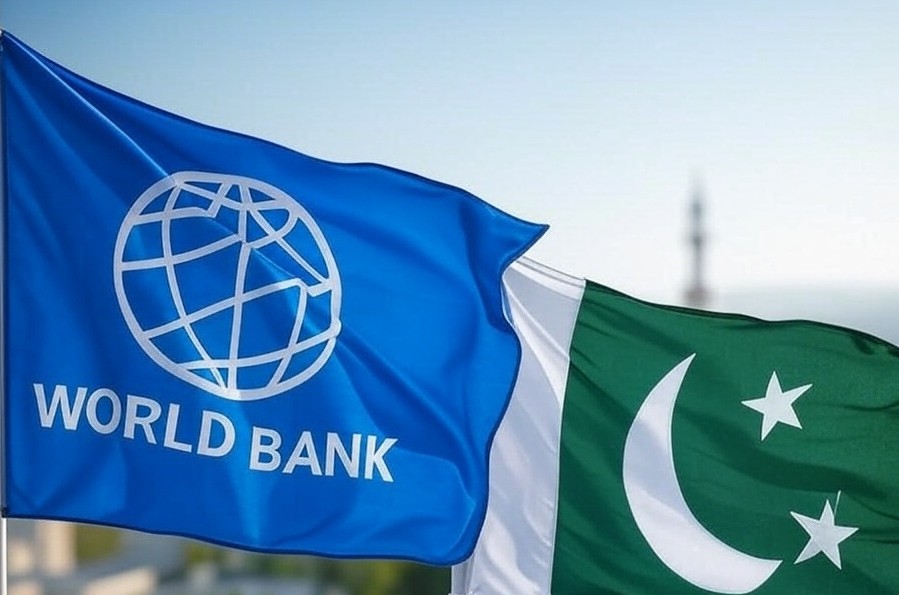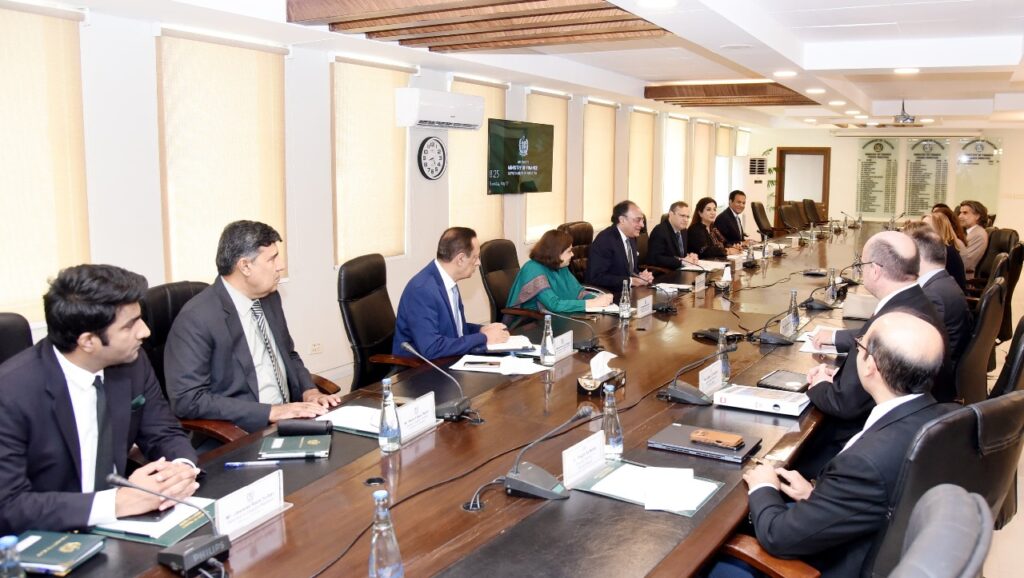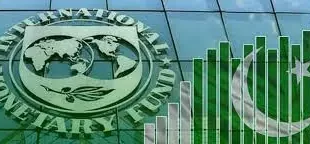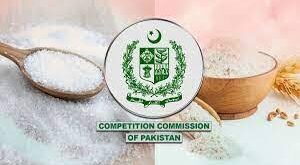
Islamabad:
A high-level meeting was held on Thursday at the Finance Division between Federal Minister for Finance and Revenue, Senator Muhammad Aurangzeb, and a senior World Bank delegation led by Ms. Anna Bjerde, Managing Director for Operations at the World Bank.
The meeting centered on strengthening bilateral cooperation, reviewing the World Bank’s financing portfolio, and expediting implementation of the newly launched 10-year Country Partnership Framework (CPF). Discussions focused on priority areas outlined under the CPF, particularly climate resilience and population management—two of the framework’s six foundational pillars. Both sides acknowledged the CPF as a vital roadmap for driving sustainable development and ensuring long-term economic stability in Pakistan.
Ms. Bjerde commended the Government of Pakistan for its continued commitment to undertaking challenging but essential reforms. She praised Pakistan’s political and economic leadership for its forward-looking approach to climate action and efforts to align growth with environmental sustainability.
Minister Aurangzeb reaffirmed the government’s commitment to the CPF, stating, “We are focused on ensuring that climate resilience and sustainable development remain at the heart of our economic planning. The CPF represents an important opportunity, and we aim to implement it with full coordination across key ministries and stakeholders.”

He added that the Ministry of Finance, the Ministry of Climate Change, and other relevant institutions are working together to establish a robust implementation framework. He also called on the World Bank to provide technical leadership and support to streamline implementation and ensure a focused rollout of the CPF.
Ms. Bjerde assured the Bank’s full support for Pakistan in achieving the CPF’s goals. She also expressed readiness to deepen cooperation in core reform areas including taxation, energy, and social protection. Notably, she emphasized the Bank’s strong backing for initiatives supporting girls’ education and women’s empowerment—key to enhancing Pakistan’s human capital and resilience.
The meeting concluded with a joint commitment to intensify efforts in the coming months to operationalize the CPF and build a stronger, more resilient development partnership for Pakistan.
Meanwhile, Federal Minister for Power, Sardar Awais Ahmad Khan Leghari, held a separate meeting with the World Bank delegation led by Ms. Anna Bjerde to discuss ongoing reforms and future strategies for Pakistan’s power sector.
During the meeting, the Minister shared that Pakistan is preparing to introduce a competitive electricity market in the near future. All preparatory work for this transition is underway. He informed the delegation that an Independent System and Market Operator (ISMO) has been established to manage market operations, and experienced professionals are being appointed to ensure its smooth and effective functioning. Under the new system, the government will no longer serve as the sole purchaser of electricity.

Highlighting key financial reforms, the Minister noted significant improvements in revenue recovery. He stressed the importance of ensuring that electricity subsidies are targeted only to those who genuinely need them, and requested the World Bank’s support in implementing more efficient, targeted subsidy mechanisms.
Ms. Bjerde endorsed the approach, affirming the World Bank’s strong support for targeted subsidies and its broader commitment to assisting Pakistan’s power sector.
The Minister also highlighted that Pakistan currently has a surplus of approximately 7,000 megawatts of electricity. He proposed supplying this excess power to industries at marginal rates, which would make it the most cost-effective industrial electricity in the region. Ms. Bjerde agreed, noting that utilizing surplus electricity at marginal cost is more beneficial than letting it go unused.
The Minister added that electricity was already being supplied at lower rates in winter without subsidies, and the aim is to extend this model year-round. He also discussed ongoing digitization in the power sector, supported by the World Bank, and briefed the delegation on privatization of three power distribution companies, expected to conclude by year-end.
He also introduced the Power Planning and Monitoring Company (PPMC), describing it as the technical backbone of the power sector.
World Bank Country Director Najy Benhassine praised the sector’s progress and announced that an additional $55 million in funding is being processed in recognition of the reforms.
 BeNewz
BeNewz




